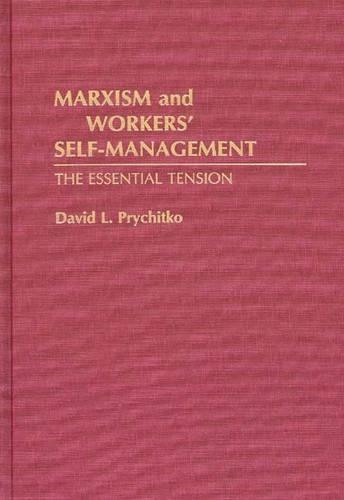
Marxism and Workers' Self-Management: The Essential Tension
(Hardback)
Publishing Details
Marxism and Workers' Self-Management: The Essential Tension
By (Author) David Prychitko
Bloomsbury Publishing PLC
Praeger Publishers Inc
30th June 1991
United States
Classifications
Tertiary Education
Non Fiction
Employee-ownership and co-operatives
Far-left political ideologies and movements
338.6
Physical Properties
Hardback
176
Description
Aiming to come to terms with Marxism and its relationship to workers' self-management, this book offers a re-interpretation of Marx's vision of socialism based on the total abolition of market exchange. The full development of workers' self-management of industry was to be accompanied by comprehensive planning of the socially-owned means of production. The author takes modern economists to task for paying too little attention to the implications of Marx's praxis philosophy and to the organizational consequences of abolishing private ownership and the market process. This abolition leads inevitably, he argues, to the development of hierarchical structures of state domination and power. This tension between democratic decentralization, workers' self-management and central economic planning, which tends to destroy meaningful self-management, can be traced back to Marx himself. The failure of state socialism in Eastern Europe and the Soviet Union has not dissuaded those who wish to keep Marx alive from pushing workers' self-management as a feasible enterprise in a free market system. The book aims at more than simply an interpretation of the meaning of Marxism. It analyzes the tension between centralization and decentralization in contemporary theory and practice. The contemporary theory of self-managed socialism, put to much use in Yugoslavia, is critically assessed. After focusing on a case study of American barrel-making co-operatives that managed to compete well with traditional capitalist firms and survive an extraordinary degree of market competition, the author concludes by speculating on the feasibility of worker-managed firms in a truly dynamic, competitive market setting.
Author Bio
DAVID L. PRYCHITKO is Associate Professor in the Department of Economics at the State University of New York at Oswego. He specializes in political economy and comparative systems studies and has written articles for Critical Review, Global Economic Policy, and Methodus.
